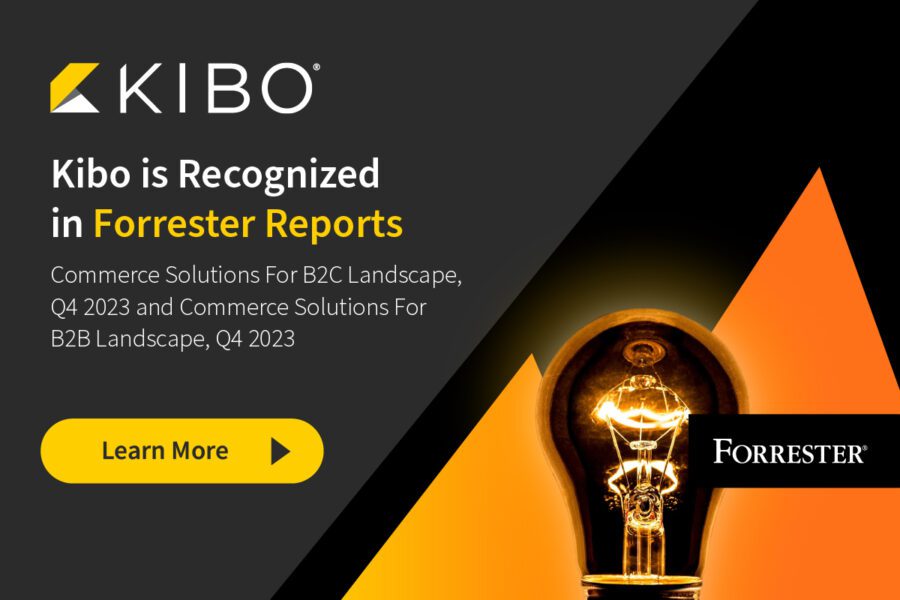There is no doubting the importance of eCommerce software in the current retail landscape, and with so many ecommerce platforms to choose from, which is the right one for your company? Many retailers are looking to provide agility and speed to their teams, to do more with less, and to ultimately have a modern technology stack that works well for the business user while providing the framework to delight and surprise customers.
To provide retailers with concrete data on the benefits that the Kibo eCommerce software can bring to an organization, Kibo commissioned independent market research firm Forrester Consulting to conduct a Total Economic Impact (TEI) study[1]. Forrester Consulting employed four fundamental elements of TEI in modeling Kibo’s value: benefits, costs, flexibility, and risks.
Forrester Consulting concluded that Kibo’s set of solutions would likely generate a risk-adjusted return on investment (ROI) of 144 percent, and a payback period of 3.3 months.
As part of the study, Forrester Consulting interviewed the VP of technology for a midsize online specialty retailer and Kibo client, who highlighted issues they faced pre-Kibo, their technology selection criteria and goals, and post-Kibo deployment results. Following are the interview highlights:
“We can work faster, deploy code faster, update content faster. What took 3 hours per week in the past only takes 5 to 10 minutes now.”
“We had separate desktop, mobile, and tablet apps that were all handled separately. It became challenging to keep them consistent day-in, day-out. Kibo allows us to consolidate the code, resources, time, and effort. We were able to reallocate 3 people.”
“We selected Kibo for its responsive design, native functionality including a CMS, it’s API-based, and the price is effective for what we need.”
Kibo eCommerce is the only leading solution developed in the smartphone and tablet era, with a mobile ready architecture that automatically creates higher converting responsive or adaptive sites from your main site theme. Businesses using Kibo do not have to worry about the latest software version or accessing market-leading features with automatic upgrades needed to stay competitive.
Kibo’s platform is designed to help retailers and branded manufacturers work smarter and empower business users to make site updates without IT involvement.
Among the benefits highlighted in the Total Economic Impact study were the following:
- Incremental eCommerce earnings – 40% uplift in mobile conversions and the resulting 13% incremental revenue from mobile
- Solution cost model effectiveness – Ongoing costs display a better business value
- Improved user productivity – Tasks that took hours each week are reduced to minutes
- Mobile investment effectiveness – Kibo’s inherent responsive design for both desktop and web allows for discontinued maintenance of two sets of code, updating process and data, and resulted in reallocation of three resources to other value-add activities
- Hardware and software cost avoidance – Reduction of on-premise infrastructure investment
[1] The Total Economic Impact™ Of Kibo eCommerce, a November 2017 commissioned study conducted by Forrester Consulting on behalf of Kibo




